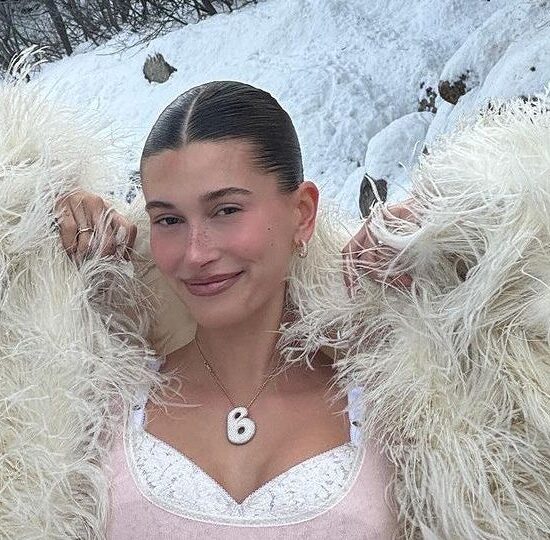
In that quarrelsome family of Italian tragic operas, “Rigoletto” is like the odd but lovable cousin: His story is so complicated and messy that you are drawn to him time and again despite his serious anger issues.
It is also considered a masterpiece of Verdi’s middle period, just before the composer began a prolific stretch toward old age with the grit of a marathon runner. So, a new and modern production at La Scala, replacing a lavish 28-year-old one, is a major event. It is also a seismic career moment for many of the artists involved, including a bold new approach to Verdi’s intricate score by a conductor who has pored over Verdi’s early notes on the opera, as well as a production designer and director inspired by the South Korean film “Parasite.”
At the center of all of this is the Mongolian baritone Amartuvshin Enkhbat, who returns to La Scala in the title role less than two years after his debut there in “Aida” in October 2020. Bringing the role of the cursed court jester to La Scala is a personal milestone for Mr. Enkhbat, 36. It is also a signature role, but never an easy one, especially at an opera house as prestigious as La Scala.
“I’ve sung the role of Rigoletto about 60 times, but this time at La Scala is a little bit intimidating and exciting,” Mr. Enkhbat said in a phone interview from Milan last month, the day before rehearsals began. “It’s a difficult role to sing in terms of acting, singing and artistic expression, and requires a lot of concentration and ability. For me, the character of Rigoletto brings out everything in me.”
After this “Rigoletto,” which runs from June 20 to July 11, Mr. Enkhbat will sing in no fewer than five other Verdi operas in the coming months: “Nabucco” and “Aida,” in Verona this summer, followed this fall by “La Forza del Destino” in Parma, “Il Trovatore” in Florence and “La Traviata” in Vienna. He will repeat “La Traviata” for his Metropolitan Opera debut in January. It is the kind of schedule befitting in-demand opera singers who book engagements months or years in advance.
“I’m getting used to it,” he said. “This is a new normal for me.”
And normal — or at least natural — is something he can relate to when it comes to music. Mongolia may not be known for producing opera singers, but it has an ancient culture steeped in music. The main city, Ulaanbaatar, has an opera house and a music academy, the State University of Arts and Culture, from which Mr. Enkhbat graduated in 2009. It was there that he got his first taste of singing opera. But from an earlier age, he sang Mongolian folk songs and urtyn duu, the traditional “long songs” of Mongolia. These lyrical chants, requiring an enormous range, are thought to be more than 2,000 years old. They could even be called operatic because of their vocal demands.
“As a child, around age 3 or 4, I had no problem singing these songs in front of my family,” he said through an interpreter. “But my first stage appearance was in the fifth grade, and I asked my classmates to turn the other way when I sang. But they all applauded, and I became the star.”
Mr. Enkhbat certainly has become that. He began singing opera professionally after graduation — including “Prince Igor” and “Rigoletto” in Mongolia. He was a winner in the Operalia competition in 2012 and won the audience award at the BBC Cardiff Singer of the World competition in 2015. He has had steady work since, to say the least, mostly with Verdi’s baritone roles with what one critic called “a lavishly upholstered voice, dark and velvety and simply enormous.”
For the Italian conductor Michele Gamba, that is exactly what “Rigoletto” should capture: a darkness, or what he calls a more nuanced effect that Verdi intended for the opera, one that he feels has been lost in the last 170 years.
“It’s a big challenge balancing out what I think is a coherent and cohesive dramatic vision of ‘Rigoletto’ these days and the gravitas of ‘Rigoletto’ in Italy,” said Mr. Gamba, who is making his La Scala debut. “Show business has taken over the specificity of the opera. My approach is aiming for something more intimate and not as showy.”
A trip to the archives at La Fenice, Venice’s beloved opera house where “Rigoletto” premiered in 1851, revealed what Mr. Gamba says is a different concept for a popular opera.
“I wanted to see with my own eyes what Verdi wrote down to try to be as close as possible to what he wanted,” he said. “It’s a constant examination of the sources and thinking through it. I’m looking for the dark whispered sounds that Verdi wrote about and a huge amount of pianissimo.”
A new approach is also behind the production itself. Margherita Palli, the designer, and the director, Mario Martone, who also directs movies, drew inspiration for this “Rigoletto” from the Oscar-winning South Korean film “Parasite” to show how worlds — and socioeconomic classes — can collide with tragic results. It could be seen as a fitting parallel to the story of “Rigoletto,” a humiliated court jester who seeks revenge on a wealthy playboy duke, with a curse, a murder or two and a few mistaken identities thrown in to complicate matters.
“It’s about two different populations living very close to each other but from very different worlds,” Ms. Palli,explained. “There will be a great door at the center connecting the world where the peasants live and the house of the duke. In a way, Rigoletto is that door. He is the one who is part of two worlds.”
Mr. Enkhbat knows something about two worlds.
Despite his ascent in the world of Italian (and some Russian) opera, he is drawn back to the opera “Genghis Khan” by the Mongolian composer Byambasuren Sharav, which Mr. Enkhbat has performed five times in his home country. He hopes to bring it to a wider audience.
“We Mongolians love this opera because it’s in our language and in our blood,” he said. “I love singing ‘Rigoletto’ and so many other baritone roles, but I also want to bring Mongolian music to the world, too.”













